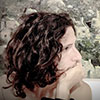Profile
Born in 1986, on August 12, San Miguel del Padrón, a municipality on the fringes of Havana.
Accompanied by the Special Period during his childhood, in an environment threatened by need and misconduct, Javier Barreiro assumed his reality by taking it to his drawings for as long as he could remember.
His whole context reversed in the fanciful comics he made as a child, his hobby inevitably led him to the world of visual arts, a vehicle by which he reinvents his daily life, escorted by the political, social and cultural reality of a historically controversial country.
Perceptibly directed towards the world of visual arts in his youth, he graduated in 2005 as a Bachelor of Humanities and Visual Arts Instructor in Havana. Then, he reached the higher level as a Bachelor of Social Communication at the University of Havana, a period in which he did not abandon his artistic work, but also influenced his ways of creating from a vision based on communication.
Currently, he is studying the San Alejandro National Academy of Fine Arts and continues to develop his work, experimenting in various aspects by which he feels trapped.
During his career, he has managed to be part of events such as the International Video Art Festival in Cuba, the ICAIC Youth Show, the City Hall, in which he has indiscriminately won awards from institutions such as FAMCA, the Experimental Workshop of La Gráfica and the Provincial Center of Plastic Arts and Design of Havana. His work is in private collections in China, Canada, Italy, Spain, France and the Netherlands mainly.
Influenced by Cuban art in the first instance, especially by the work of Antonia Eiríz, Fidelio Ponce de León, René Portocarreo, Leopoldo Romañach; and the most contemporary Lázaro Zaavedra, Sandra Ramos, Flavio Garciandía and Tomás Sánchez; His work has gone through various periods ranging from graphics, video art, to expressionism, but nothing in its purest form. It constantly fuses different tendencies with which it resizes and recontextualizes its reality, always perceived from the questioning of the Cuban social political panorama.
